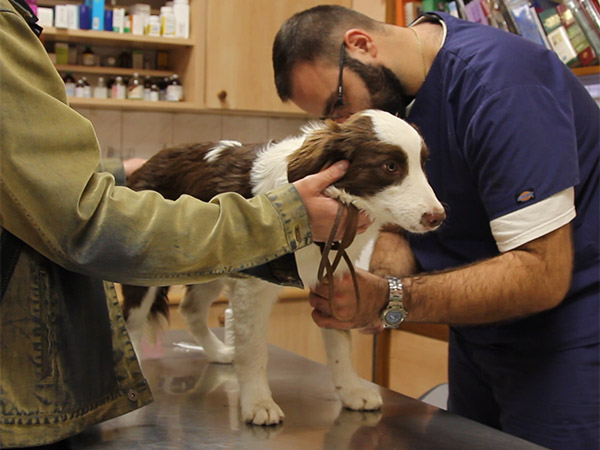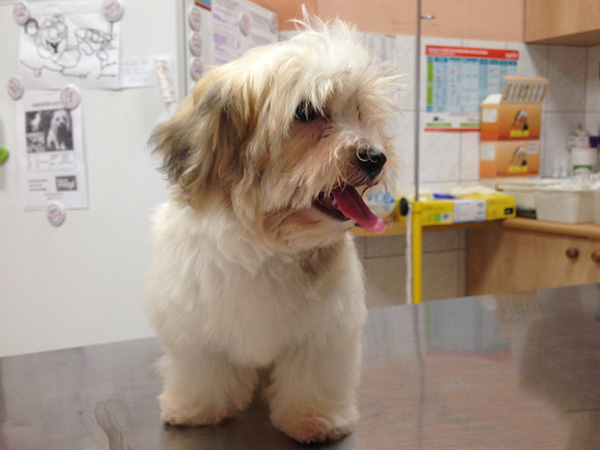When to take your dog to the Vet: The Simple Guide
Pet owners give their animals different degrees of attention and care. While some dogs enjoy plush bedding and extravagant accessories, others are treated more as working dogs, with a less luxurious lifestyle
The same goes for health care: some dog lovers rush their canine to the vet once a week for tooth brushing and ear cleaning...
While other dogs only visit the veterinary office only when they are sick or hurt; maybe once or twice in their life.
You could argue that neither approach is right, certainly, the second case is not good.
So just when should a dog visit a vet?
When you Must Visit the Vet!
There is not just one reason why you should visit the vet, and just going there when there is sickness can be a big mistake.
The frequency that you take your dog to the vet depends a lot on the age of the pet. Puppies and older dogs often require more vet visits than healthy, middle-aged canines.
So let’s take a look at the reasons why you MUST visit your vet.
Vaccinations, Deworming and Booster Jabs
If you have had your dog for well over a year, whether a puppy or not, then you really should have been to the vet for some jabs, even if your dog won’t love you for it!
Puppies need a series of vaccinations to protect them against diseases such as parvovirus and rabies.
These first shots usually occur before the pup is four months of age.
This is a rough timetable for a puppies vaccination in the first year. You may see different timings elsewhere. But your vet will give the specific schedule they recommend.
Puppies’ vaccinations schedule starts at 6 weeks of age with the inoculation against the Parvovirus stomach infection.
At 8 weeks a combination of vaccines is given (Parvovirus, distemper, kennel cough, hepatitis, Leptospirosis )
At 10 weeks the combined vaccination needs to be repeated.
At 3 months of age the Rabies jab is given. This vaccination is legally required, every dog that reaches 3 months of age must have this.
At 6 months of age the combined vaccine is repeated once again so that the protection is established properly.
At 12 months of age the Rabies jab is repeated
Deworming treatments are given at intervals in this period and after, and booster jabs are usually necessary every year or two after this.

The Regular Vet Check-Up
Most veterinarians will recommend that grown dogs (up to six years old) make yearly visits to the vet for checkups.
During these visits, the dog will be examined for potential health problems, worms, and infestations such as ticks and fleas. The dog's weight will be checked, and it will get its annual rabies shot. Pet owners have the opportunity to ask any questions.
After six years of age, all dogs should begin biannual vet visits.
From around 8 years old, canines are considered to be entering their senior years. This is the time when the animal may begin to develop arthritis and other conditions due to aging.
The sooner these are detected by your vet, the easier they are to control.
Health Issues are a Vet Visit Must!
Dogs with health issues will need to see a vet more frequently, as will dogs who are being monitored for conditions their breed is prone to. Twice a year visits for a healthy animal that may be more susceptible to health problems is a good idea.
Other times that you will need to take your dog to the vet's office include when it has an injury, appears sick, or when it is not eating or acting normally.
Whether you plan to have your dog spayed or neutered or plan to breed your animal, you will want to make a trip to the vet and discuss the best practices to keep your animal in optimal health.
In most cases, products such as special dietary supplements, flea and tick control and heartworm prevention can be obtained from your vet without taking your dog for a visit.

when-to-take-your-dog-to-the-vet
If Unsure, Head through the Vet’s Door!
Remember a dog can’t tell you when they are unwell, not in words anyway.
But they can give you hints in several ways. Such as by expression, change in behavior, lower energy levels, and disinterest in food.
If you notice any change in your dog’s behavior and there is any sign of lethargy or discomfort, then visiting your vet is very much worth doing!
Vet Expense? Think Pet Insurance
Many people are reluctant to take their animals for yearly visits to a veterinary office because of the expense.
However, diagnosing and preventing disease early is much cheaper than waiting until your canine is sick to make a trip to the vet.
Many national animal clinics and even local veterinary offices are now offering annual health plans that reduce the expense of keeping your dog healthy and happy.
And pet insurance, in the long run, can really save you money, worry, and trouble down the road.
So there are many options out there for you.
And while it may be that your dog doesn’t end up needing many vet visits, as they age it becomes more likely.
So if you are a new dog owner, you may not have been aware of all the visits to the vet that are necessary down the road. With this in hand, you can be prepared for what is needed to keep your dog happy, healthy and brimming with life.
OR read more about how you can be a responsible (and amazing) dog owner!

